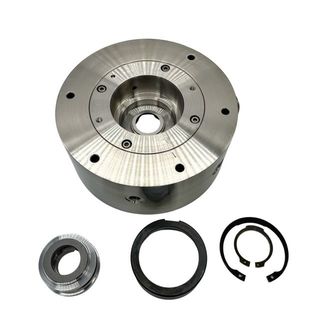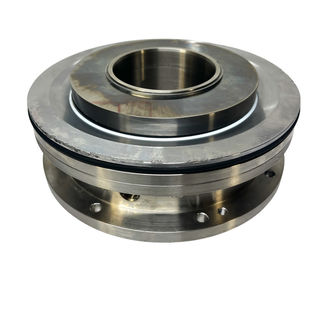SEARCH
Categories
FEATURED PRODUCTS
Why use specific materials to make mechanical seal facings?
Tekhniseal Blog 3 - ‘Why use specific materials to make mechanical seal facings?’
Mechanical seals are a collection of components whose aim it is to prevent leakages from a vessel or machine. Seals serve a wide range of functions, and plug an array of liquids. Therefore, they need to be manufactured from a diverse range of materials. Within a mechanical seal, there are two opposing faces pushing against each other, one attached to the outer vessel wall and the other attached to the rotating shaft. The two faces of a mechanical seal do not, however, have to be made from the same material; for example, you may wish to have a seal constructed with one Silicon Carbide face and one Carbon face. The pairs of faces generally require low friction and a high tolerance for prolonged contact with each other, to ensure smooth movement as one face is constantly rotating against the other. The microscopic gap between the faces allows for lubrication to reduce the effect of friction between the pair; however, certain materials are self-lubricating in themselves and, therefore, do not need external lubricants. Selecting the correct material for your mechanical seal will help its longevity and aid in preventing unnecessary leakages and repairs.
What types of materials can Tekhniseal manufacture mechanical seals from?
Carbon
- Carbon can work well as a seal for many different materials
- However, carbon is not an appropriate seal material for working at very high pressures
Silicon Carbide
- Silicon Carbide is chemically similar to ceramic, but it has improved lubrication potential, to allow for the smooth movement between the two faces within a mechanical seal
- It is appropriate for more challenging materials that need plugging within a vessel, due to its hardness
- Mechanical seals made from Silicon Carbide can be refurbished multiple times to expand their lifespan, and so could be a more cost-effective choice for your business in the long term
Tungsten Carbide
- Tungsten Carbide is incredibly versatile and works with multiple materials to prevent leakage within a vessel
- It has some inherent elasticity, allowing it to flex, which in turn helps prevent face distortion
- Mechanical seals made from Tungsten Carbide can be refurbished multiple times in order to expand their lifespan, so could be more cost-effective for your business in the long term
Bronze
- Bronze can be used in mechanical seals which need to plug materials which exceed the limitations of a Carbon face
- It has a degree of forgiveness when paired with a hard opposing face, preventing face distortion
- Bronze has many benefits, including its strength and thermal conductivity when compared to Carbon
- However, Bronze is not a self-lubricating metal, and thus the seal would require external lubrication
PTFE
- PTFE can withstand extreme temperatures and very high pressures
- It can also be used within the food, drink, and pharmaceuticals industries
- PTFE is a low friction mechanical seal face manufacturing option, and excels when a machine is dry running
Stainless Steel
- Stainless Steel works well with corrosive or caustic liquids as well as acids
- It could be appropriate for food, drink, and pharmaceuticals industries
- Stainless Steel has a lower thermal conductivity than Tungsten Carbide
Tekhniseal’s specialised team is ready to help you decide what material would be most appropriate for your mechanical seal faces. We can also recondition your pre-existing mechanical seals into a new seal of the highest quality to be the best fit for sealing a completely different liquid, or within a different vessel. Our team are experts in finding cost-effective solutions to your manufacturing leakage problems. Our on-site workshop means that we can offer a quick turnaround, often a same or next day delivery depending on the quality of the original part and its condition. Contact us today to learn about our next-day delivery of mechanical seals.
Posted: Tue 19 Apr 2022



